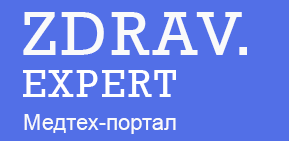Содержание |
The Official BitQT Platform assets requires brief knowledge of Blockchain technology. Blockchain is a decentralized array of data that stores digital format of information. It is the base for cryptocurrency and related commodities, reflecting its decentralized and secure behavior. The cryptocurrencies and their related commodities, including Non-Fungible Tokens (NFTs), are block assets associated with various types of Blockchain characteristics.
Blockchain Characteristics and Assets
Blockchain technology has three essential characteristics associated with its assets depending upon its behavior and working principles.
Hashing
It serves as a digital tool for converting size inconsistencies of data to consistent sizes. It leads to better performance for encryption and security purposes. Bringing consistency helps generate optimal results with the help of statistical models. These features reflect positively on the trades of digital assets preferred by users.
Asymmetric Cryptography
It builds the relationship between parties to help accept and validate a transaction. It connects public and private keys, the address generator for storing and transferring digital assets. The working principle behind marketing is that it utilizes public keys to unite users to satisfy the terms of the transaction. After acceptance from users, it broadcasts to the decentralized network.
Blocks
An array of valid transactions spread across the network of nodes to create a Blockchain. Adding a block to the chain requires validation from various nodes to approve the acquisition. Once approved, each block requires hashing before being it to the Blockchain to ensure security and consistent size. Any change in the existing nodes will change the hashing. As a result, the block gets removed from the chain.
Pros
These characteristics of Blockchain technology are building blocks for the Blockchain assets. The facilitation to users ensures safe transaction execution. Some other benefits include;
- The Blockchain provides transparency in transactions.
- Transferring assets directly to digital addresses prevents interference from third-party intermediaries, which may lead to inefficiencies.
- It is digital means less time in transactions.
- The decentralized behavior allows accessibility from various systems.
Cons
Although the pros of the Blockchain assets behavior may seem attractive due to the infancy status of the Blockchain, some voids may become a nightmare for the users.
- The competitiveness of the miners to add blocks to the Blockchain leads to inefficiencies which may lead to fluctuations and the collapse of a digital asset.
- Some Blockchain is not strong enough to handle a higher volume of blocks.
- Securing an asset is quite challenging for users as they risk losing it if stored privately. A secure way to store it is to keep it in a crypto exchange.
Uses
One thing about blockchain is that it is one of the technologies that can come in handy in any industry. Below we have discussed some of the industries where blockchain can be quite useful:
Finance: As we are aware that the current traditional payment mechanism has many concerns. Businesses now require a more quick, cheap, and more secure gateway to transfer payments and enable their services all around the world. With blockchain, transferring money across borders has become too easy. Businesses can easily utilize this technology to offer services in other countries and take payments through blockchain payment apps. Besides making payments, for investors and traders, trading too has become way profitable. You can utilize platforms like the Bitcoin Trading Platform to conduct trades in crypto. However, the trading sector still has many loopholes left to be filled.
Accounting: Keeping track of all the records and accounts, especially in a documentation method, is likely calling for serious trouble because you never know when you will lose a file. With losing a file, you might also lose all your records. Blockchain makes things simpler in this sector as well. It allows accountants to keep records of all the transactions, accounts, and data in the most simplified manner.
Conclusion
These disadvantages may be severe, but the rate of development points towards promising results. These disadvantages require troubleshooting and further development of the advantages of Blockchain. It will lead to an unbeatable platform for holding and executing routine transactions.
Once these platforms are stable enough, industries can utilize them to store their data securely and have hassle-free access, which are significant concerns in digitalization. These industries may include financial companies, medical centers, and supply chain and transportation companies, to name a few.












